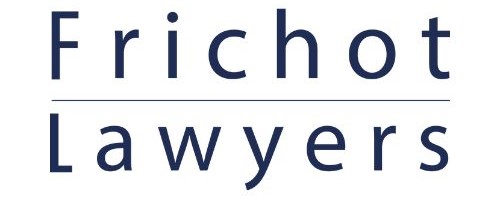Introduction
On 29 May 2020, the Western Australia Government released the Commercial Tenancies (COVID-19 Response) Regulations 2020 (WA), which incorporates the Western Australian Commercial Leasing Code of Conduct (Code). The Code came into operation on 30 May 2020, however many of its provisions apply retrospectively to the beginning of the ‘emergency period’, which began on 30 March 2020 and ends on 29 September 2020 (if no other end date is prescribed by regulations before then).
Eligibility
The Code applies to a ‘small commercial lease’ that is a ‘relevant small commercial lease’ and to landlords and tenants under those leases.
A ‘small commercial lease’ is defined as:
- a retail shop lease as defined in the Commercial Tenancy (Retail Shops) Agreements Act 1985 (WA) section 3(1); or
- a lease where the tenant owns or operates a small business and uses the land or premises that are the subject of the lease for the purpose of carrying on that business; or
- a lease where the tenant is an incorporated association as defined in the Associations Incorporation Act 2015 (WA) section 3; or
- any other lease that is of a class prescribed by regulations (no other classes of leases have currently been prescribed).
A ‘small business’ is defined as a business undertaking:
- which is wholly owned and operated by an individual person, or individual persons in partnership, or by a proprietary company as defined in the Corporations Act 2001 (Cth) and which:
- has a relatively small share of the market in which it competes; and
- is managed personally by the owner, or owners, or directors; and
- is not a subsidiary of, or does not form part of, a larger business or enterprise;
- which is declared by the Governor by Order in Council to be a small business for the purposes of the Small Business Development Corporation Act 1983 (WA).
A ‘relevant small commercial lease’ is defined as a small commercial lease where the tenant is an ‘eligible tenant’ in relation to the small commercial lease.
A tenant under a small commercial lease is an ‘eligible tenant’ in relation to that lease if:
- the following turnover in the financial year ending on 30 June 2019 was less than $50,000,000.00:
- if the tenant was a franchisee – the turnover of the business conducted by the tenant at the land or premises that are the subject of the small commercial lease;
- if the tenant is a corporation that is a member of a group – the turnover of the group;
- in any other case – the turnover of the business conducted by the tenant at the land or premises that are the subject of the small commercial lease;
- the tenant qualifies for the Jobkeeper scheme; or
- the tenant has, at any time during the emergency period, satisfied the turnover test set out in section 8 of the Coronavirus Economic Response Package (Payments and Benefits) Rules 2020 (Cth) – for most small businesses, this will require them to have experienced at least a 30% decline in turnover compared to the same period in 2019, but please contact us for advice on your specific circumstances as a different test may apply to you.
Rent relief
An eligible tenant under a small commercial lease may, during the emergency period, request rent relief from the landlord.
The request must be in writing and be accompanied by:
- a statement by the tenant that:
- the tenant’s lease is a small commercial lease; and
- the tenant is an eligible tenant in relation to the small commercial lease;
- sufficient and accurate information that demonstrates:
- that the tenant is an eligible tenant in relation to the small commercial lease; and
- the reduction in the tenant’s turnover that:
- is associated with the business conducted at the land or premises that are subject of the small commercial lease; and
- the tenant has experienced during the emergency period.
On receipt of a request for rent relief from an eligible tenant that meets the above requirements, if the tenant is eligible for rent relief, then the landlord must offer rent relief to the tenant within 14 days of receiving the request, or such other period that is agreed between the landlord and the tenant.
The landlord’s offer of rent relief must be in writing and apply to the emergency period.
The rent relief offered by the landlord must be at least proportionate to the reduction in the tenant’s turnover that:
1. is associated with the business conducted at the land or premises that are the subject of the small commercial lease; and
2. the tenant has experienced during the emergency period
For example, if the tenant has experienced a 50% reduction in turnover during the emergency period, then the rent relief offered should be at least 50% of the rent payable during that period. This may require the rent to be adjusted each month and a final adjustment to be made at the end of the emergency period, to ensure the rent reduction reflects the tenant’s decline in turnover for the whole emergency period.
Unless the landlord and tenant agree otherwise, the decline in the tenant’s turnover is to be assessed in accordance with the turnover test set out in section 8 of the Coronavirus Economic Response Package (Payments and Benefits) Rules 2020 (Cth). The basic decline-in-turnover test is a comparison of the tenant’s projected GST turnover with a comparable period in 2019, but please contact us for advice on your specific circumstances as a different test may apply to you.
An offer of rent relief may be for up to 100% of the rent payable under a lease. If the landlord is a tenant under a head lease and is provided rent relief by the head landlord, then the landlord must pass on the benefit of that rent relief to the tenant.
Unless the landlord and tenant agree otherwise, at least 50% of the rent relief offered must be in the form of a rent waiver (the other part may be in the form of a rent deferral).
However, an offer of rent relief must provide that more than 50% of the rent relief is to be in the form of a rent waiver if:
- failure to provide more than 50% of the rent relief in the form of a rent waiver would compromise the tenant’s capacity to fulfil the tenant’s ongoing obligations under the lease; and
- the landlord has the financial capacity to provide more than 50% of the rent relief in the form of a rent waiver.
Unless the landlord and tenant agree otherwise in writing:
- the landlord must not request payment of any deferred rent until the earlier of the following:
- the day on which the emergency period ends (29 September 2020 unless a different date is prescribed by regulations); or
- the expiry of the term of the lease (not including any extension to which the tenant is entitled under the Code); and
- deferred rent must be paid to the landlord amortised over the greater of the following periods:
- the balance of the term of the lease; or
- at least 24 months.
Unless:
- the landlord is a tenant under a head lease of the land or premises and offering the tenant an extension of lease would be inconsistent with that head lease; or
- offering the tenant an extension of lease would be inconsistent with any contract or agreement already entered into by the landlord with someone other than the tenant relating to the land or the premises (e.g. a lease to another person),
then the landlord must offer an eligible tenant under a small commercial lease an extension of the term of the lease on the same terms and conditions that applied under the lease immediately before the emergency period.
Unless the landlord and tenant agree otherwise in writing, the period of the extension of lease must be equivalent to the period for which rent is deferred.
If the landlord and an eligible tenant under a small commercial lease enter into an agreement under which the tenant is provided rent relief under the Code, and subsequently the financial circumstances of the tenant materially change, then:
- the tenant may make a further request for rent relief to the landlord;
- if the tenant makes such a request, the process described above applies to that request.
If, before the Code came into operation, the landlord and tenant entered into an agreement under which rent relief is provided to the tenant during the emergency period or any part of it, then if the tenant believes that the rent relief provided under that agreement is less favourable than the rent relief that might be provided to the tenant under the Code:
- the tenant can make a request to the landlord for rent relief under the Code; and
- if the tenant does make such a request, the process described above applies to that request.
If, during any part of the emergency period, an eligible tenant is unable to conduct their business at the land or premises subject of a small commercial lease, then the landlord must consider waiving recovery of any outgoing or other expense payable by the tenant to the landlord under the lease for that part of the emergency period.
The landlord may cease to provide, or reduce provision of, any service at the land or premises as is reasonable in the circumstances, or in accordance with any reasonable request of the tenant.
If any outgoings charged in relation to the land or premises subject of a small commercial lease are reduced during any part of the emergency period, then the landlord must not require an eligible tenant to pay any amount in respect of such outgoings that is greater than the tenant’s proportional share of such reduced outgoings payable under the lease.
If an eligible tenant under a small commercial lease has already paid to the landlord an amount greater than the tenant’s proportional share of such reduced outgoings, the landlord must reimburse the excess amount to the tenant as soon as possible.
A copy of the Code is available by clicking here. This article provides general information about the Code. We recommend seeking professional legal advice from our experienced leasing team in regard to your specific circumstances.
For further information, or to discuss:
- how we may be able to assist you to negotiate with your landlord or tenant; or
- preparation of a variation of lease to reflect an agreement reached with your landlord or tenant,
please do not hesitate to contact us on
9335 9877 or [email protected]
* to arrange an appointment with one of our lawyers. Appointments can be in-person, or by voice or video call.





